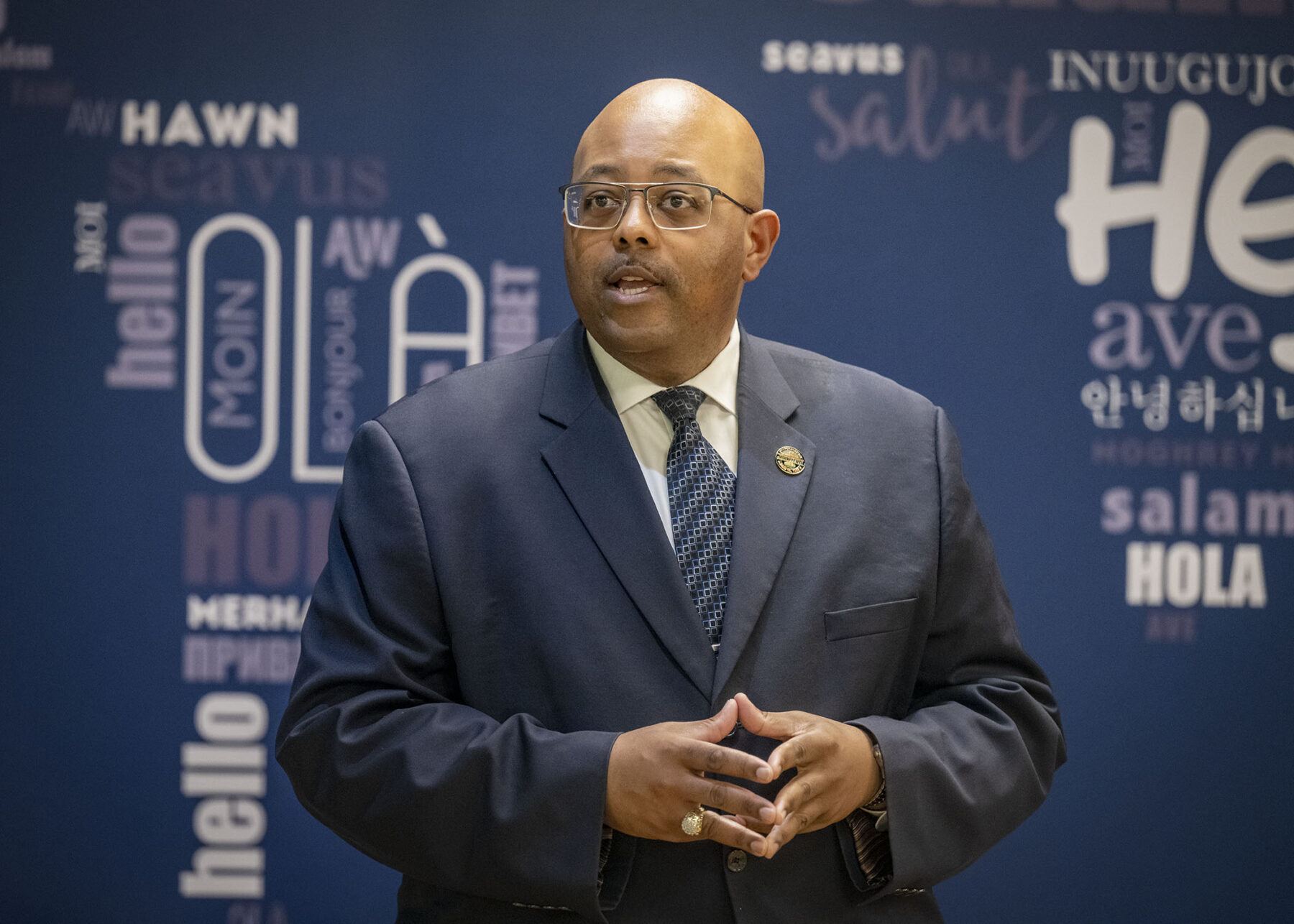
Considering Black Appalachian History Then and Now An interview with Fahe Board Member at Large Adam Dickson
The bookshelf in Adam Dickson’s office holds a prominent sign reading “Good Trouble” — a phrase that originated with Rep. John Lewis, a civil rights icon who served more than three decades in Congress. Dickson, a Fahe Board Member at Large, says he was inspired by various civil rights leaders to be intentional about his own career over the past 24 years. Although Dickson acknowledges there is a lot of polarity around the topic of race, he prefers to embrace a “growth mindset,” and take on roles to help chip away at the problem of racism in the pursuit of equity for all people.
Dickson joined Fahe as a Board Member at Large in 2023. He currently serves as the Multicultural Engagement Manager at the Langston Centre in Johnson City, Tennessee. The center promotes community engagement through arts, education, and leadership activities and is situated on a site that once served as the high school for African American students from the late 1800s to the mid-1900s.
In honor of Black History Month, Dickson was eager to talk about progress that he sees in the Appalachian region. Dickson says he is proud of Fahe’s role in supporting Black leadership through the ABCD Group—a coalition of Black community development leaders. Fahe has provided consulting and fundraising support to the group. Dickson appreciates the opportunity for interactions with other members of the ABCD Group, such as the noted historian Dr. William H. Turner. Dr. Turner wrote The Harlan Renaissance: Stories of Black Life in Appalachian Coal Towns a book about Black people in Appalachian history.
As a board member, Dickson is very familiar with Fahe’s Strategic Plan which outlines Four Corners of Money, Capacity, Narrative, and People as a key strategy to achieve Fahe’s vision of a thriving Appalachia. Dickson says that he resonates with building Capacity because it is vital — especially for grassroots, minority-led organizations — to building community.
He is also excited about Fahe’s work at reframing the Narrative of the region. He is eager to help overturn stereotypes and hopes Appalachia can be correctly seen as inclusive of people of color.
“I find I often need to remind folks that African Americans first arrived in Appalachia in the mid-1500s as slaves to Spanish and French explorers,” Dickson said. “They fought in the Revolutionary War, including the battle of Kings Mountain in South Carolina in 1780. The brave fighters from the Appalachian mountain range participated in this significant turning point in the American Revolution.”
When asked about his advice for young people, especially young people of color, Dickson replied that he hopes people will consider putting down roots in Appalachia.
“Just the other day,” he said, “A young Black woman, who loves biking and pickleball in her rural town of Tennessee, told me she has found a great work/life balance. She works remotely for Microsoft. She can live in the town she loves and pursue a successful career at the same time. I am excited that these options exist for more people today.”
Adam Dickson is a community advocate and servant-leader. His professional experiences include local government, higher education, and the nonprofit sector. Adam currently works for the City of Johnson City, TN as Supervisor of the Langston Centre, a multicultural facility promoting community engagement through the arts, education, and leadership. He is Vice-Mayor on the Board of Mayor and Aldermen for the Town of Jonesborough, and he is an Adjunct Instructor of Political Science at East TN State University. Adam holds a Bachelor of Arts degree in Political Science from Carson-Newman University, and he received a Master of Public Administration degree from East TN State University.
